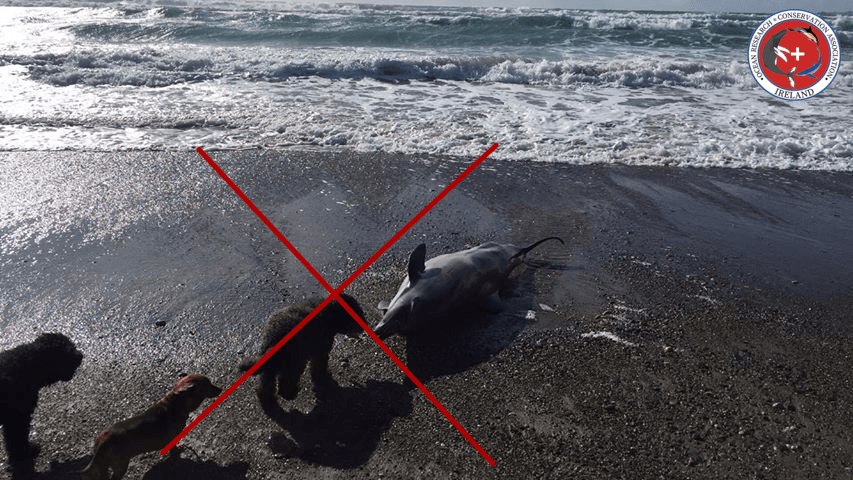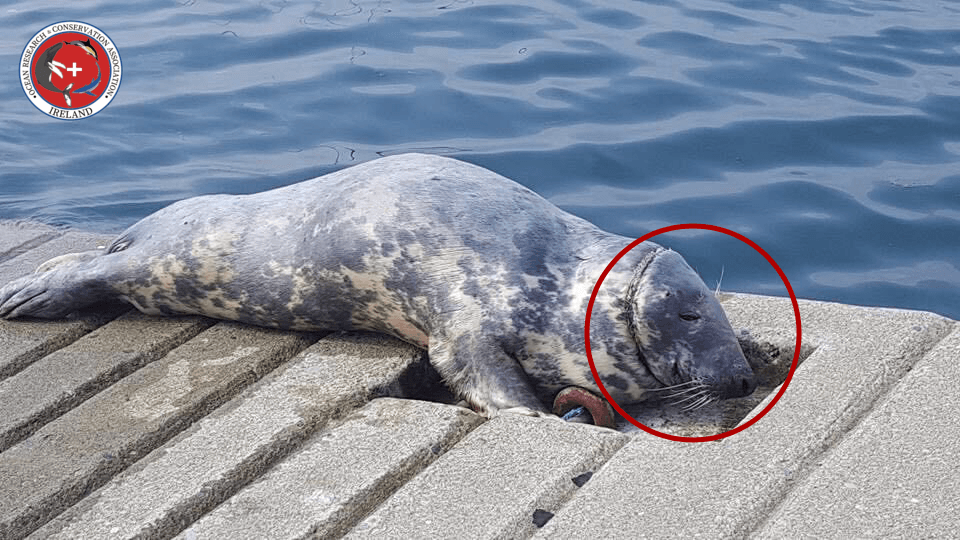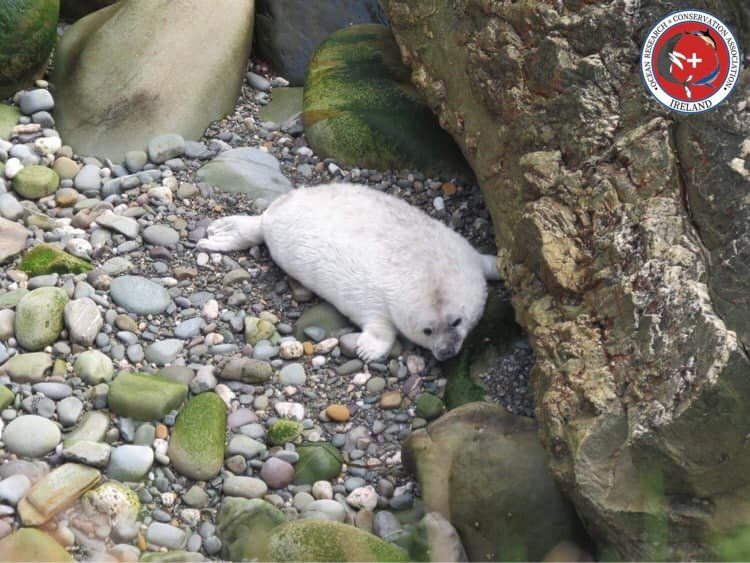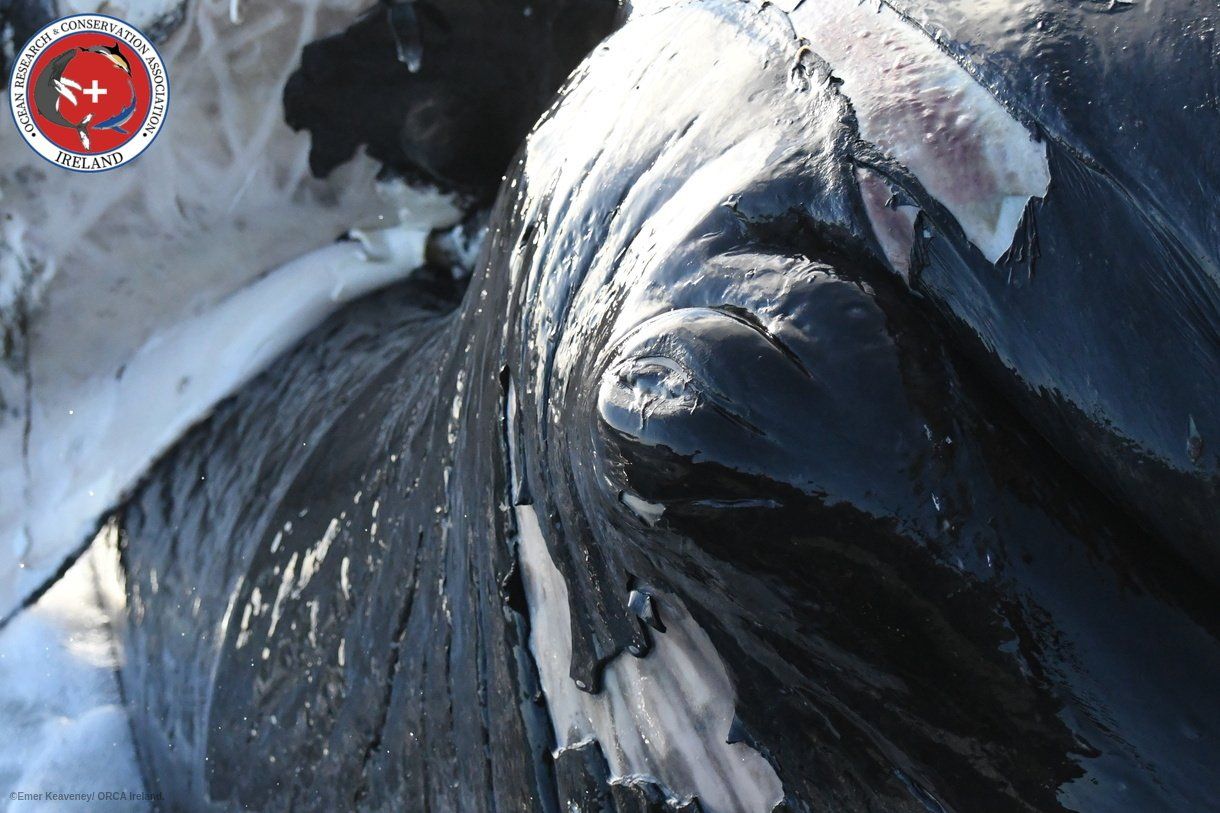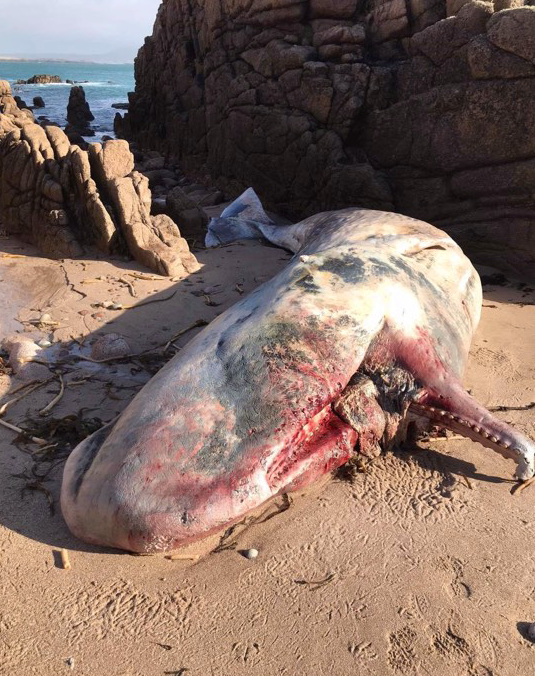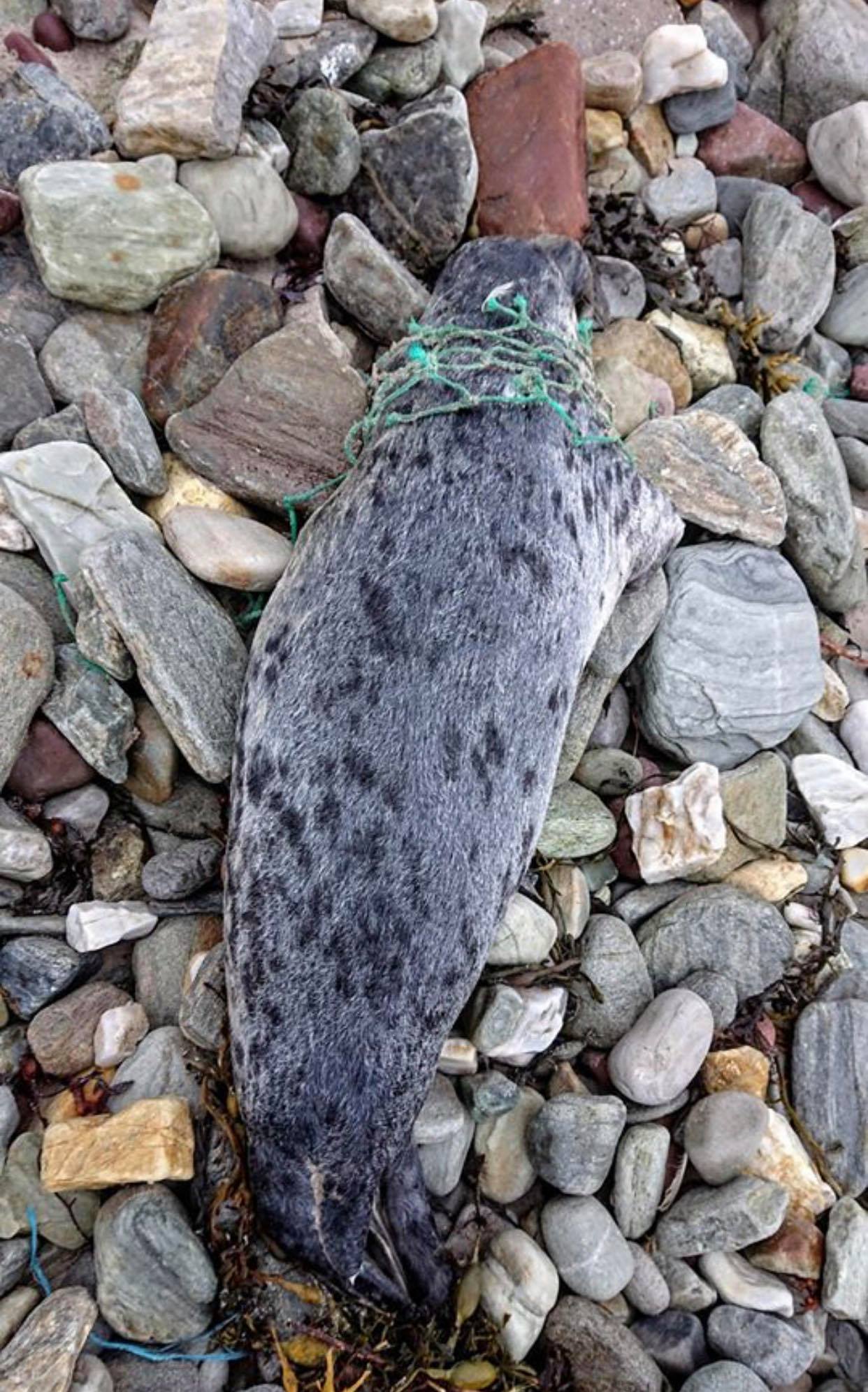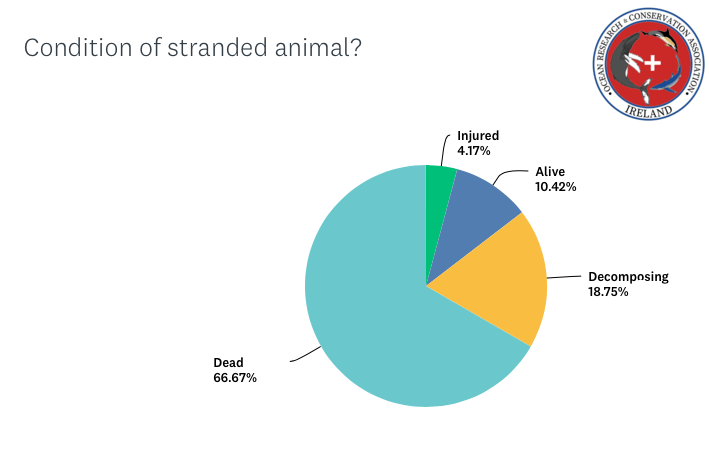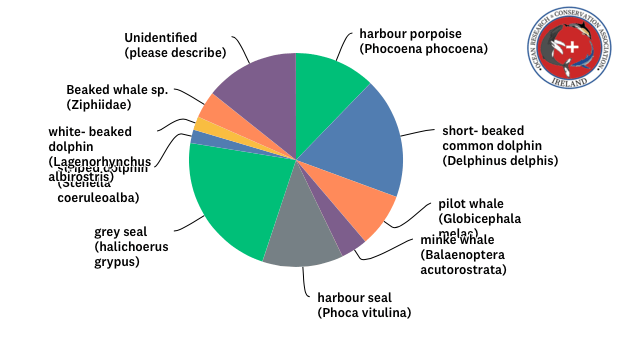Marine Mammal
Stranding Responders
What to do if you find a stranded or injured marine mammal?
- Keep a safe distance (100 meters) from a marine mammal (seal, dolphin, whale, porpoise).
- Keep dogs on a lead and away from live and dead stranded marine mammals to reduce the risk of zoonotic disease transmission.
- For Dead Strandings; Fill out a report via the OBSERVERS App and upload images.
- For Live Strandings; Call
ORCA's Marine Wildlife Stranding Responders
24 hr
HOTLINE +353-89-462-53-74
.
What to do if you find an entangled animal?
- Keep a safe distance (at least 100 meters)
- Note where on the animals the entanglement is most severe and the level of injury.
- Call our 24 hr HOTLINE +353-89- 462-53-74.
- Track it's movements and keep us updated on its whereabouts.
Not all beached seals need help!
- Not all seals are stranded and need help, as seals "haul-out" or rest on beaches.
- Mothers often leave seal pups for up to 24 hrs on forging trips in adjacent waters.
- Pups may be abandoned by their mothers if you get too close!
- Some young seals hauled out may already be weaned and are taking a break from swimming.
-Keep a safe distance of 150 meters from seals. Do not approach seal pups and limit disturbance to seals by keeping dogs on a leash.
What Stranding Records Tell Us:
ORCA Ireland's growing body of data on marine mammal strandings in Ireland, collected through the OBSERVERS App can determine spatial and temporal trends in stranding frequency and distribution of protected marine species. Often, strandings represent a proportion of at sea mortality of a given species population and may help to determine their at sea-distribution.
Only 10% of reports are of live stranded animals - but the sooner we get to them the greater their chance of survival!
Report a Stranding:
If you find a dead stranded marine mammal, or shark on a beach in Ireland, please report it to the OBSERVERS App.
If you find a live animal in trouble please call ORCA Ireland's Marine Wildlife Stranding Responders Hotline:
24/7 HOTLINE: +353-89- 462-53-74.
What is a Stranding Event?
There are many types of stranding events that can occur on Irish shores which include a range of marine species, from marine mammals (whales, dolphins, porpoise and seals) to elasmobranchs and Bluefin tuna. Stranding events may involve one animal, or multiple animals of the same or different species (mass strandings).
A stranding event usually involves one of the following:
- A deceased animal washed ashore or floating at sea.
- An alive animal onshore and unable to return to the sea and/or injured and in need of medical attention.
-
A disorientated animal in an unusual location for it's species.
Reporting Information:
When you call our Stranding Responders hotline, please provide the following information: your name, your location, any photos or video's you have. We will help you to identify the species and give you advise on what to do until our First Responders arrive to the location.
An entanglement event can be of an animal at sea or onshore. When large whales are entangled there can be a serious welfare issue for the animal and to the trained responders who are attempting to disentangle the animal. Human safety must always be put first in these emergency situations.
-
Report an Entanglement:
If you find a live or dead marine mammal or shark entangled in debris, be it fishing gear, plastics ect.. please report it to the OBSERVERS App. Data is contributed to the Irish Entanglement Alliance (IEA).
HOTLINE: +353-89- 462-53-74.
What is an Entanglement?
According to the International Whaling Commission (IWC), 300,000 cetaceans (whales, dolphins and porpoise) die annually around the world due to entanglement in fishing gear alone. Entanglement also effects pinnipeds (seals) and seabirds.
Entanglement can lead to animal's becoming exhausted and drowning or gaining deep lacerations that can lead to infection as heavy ropes bite through skin. It can also lead to starvation as animals towing heavy gear cannot feed efficiently.
-Alive animal with obvious injury or marks from entrapment in fishing gear or plastic debris.
- Alive animal with fishing gear wrapped around its body (e.g. head, neck, tail fluke, flippers ect..).
- Dead animal with fishing gear and/or obvious injury or marks from fishing gear or debris.
OUR HOTLINE IS AVAILABLE 24/7, 365 DAYS OF THE YEAR! +353-89- 462-53-74.
According to ORCA Ireland data, grey seals, short-beaked common dolphin and harbour porpoise are the most commonly stranded marine mammals in Ireland.
Additional local contacts and reporting bodies:
National Parks & Wildlife Services (NPWS)
Website: www.npws.gov.ie
Oiled Wildlife Response Network
Email: info@oiledwildliferesponse.ie
Website: www.oiledwildliferesponse.ie

